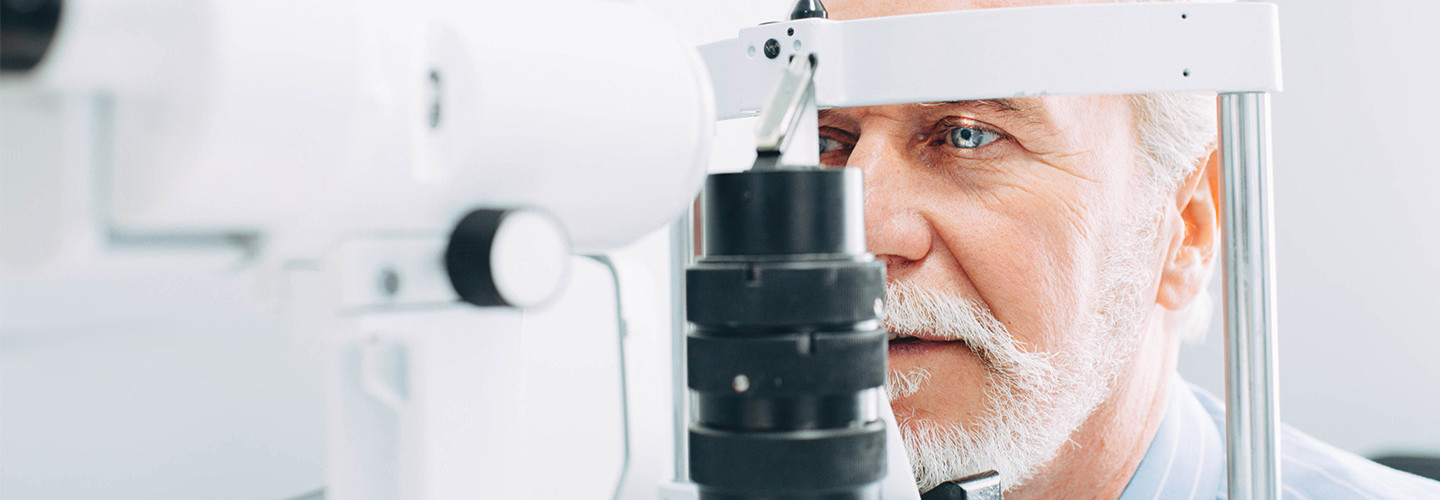All Categories
Featured
Low vision is a condition that significantly influences day-to-day activities like analysis, driving, or recognizing faces, despite having restorative lenses. For individuals dealing with such challenges, reduced vision recovery provides a path to restore independence and enhance lifestyle. Let's look into the available choices for low vision rehabilitation and just how they aid individuals navigate the world extra confidently.
Recognizing Low Vision Recovery
Reduced vision rehab is a specific solution designed to make best use of the practical abilities of people with irreversible vision disability. This multidisciplinary strategy includes assessments, training, and tools customized to every individual's distinct demands. The objective is to encourage people by improving their remaining vision and teaching methods to adjust to their environment.
Secret Options in Low Vision Rehab
Comprehensive Eye Exams
A reduced vision professional does comprehensive evaluations to recognize the extent of vision loss and identify suitable interventions. These evaluations concentrate on figuring out the person's visual acuity, outer vision, and light level of sensitivity.
Assistive Tools and Technology
A broad variety of innovations and tools are offered to assist people with reduced vision:
Magnifiers: Handheld, stand-mounted, or digital magnifiers help expand text or pictures.
Telescopic Lenses: Useful for range watching, such as viewing television or reading street indicators.
Display Visitors: Software that reviews out loud the text on a screen, assisting those that battle with reading.
CCTV Systems: Closed-circuit televisions magnify published product or items for simpler watching.
![]()
Mobile Phone Applications: Applications like Be My Eyes or Seeing AI supply real-time assistance and summaries of environments.
Training Programs
Vision rehab consists of training to maximize making use of staying vision and adapt to new tools:
Alignment and Mobility Training: Assists individuals navigate unfamiliar areas and make use of walking canes or overview canines efficiently.
Daily Living Skills: Shows techniques for cooking, grooming, and other daily tasks with minimal vision.
Aesthetic Skills Educating: Includes workouts to reinforce field of vision or boost focus.
Environmental Modifications
Adjusting the home or office can significantly improve self-reliance:
Setting up brighter illumination and contrasting shades.
Adding responsive markers to devices.
Arranging furnishings to develop clear paths and reduce challenges.
Counseling and Emotional Support
Vision loss can be psychologically challenging. Support groups and therapy solutions help individuals deal with the mental effect and build durability.
Who Offers Reduced Vision Recovery?
Low vision rehab solutions are provided by:
Low Vision Specialists: Eye doctors or ophthalmologists with extra training.
Occupational Specialists: Specialists that focus on improving everyday functioning.
Recovery Therapist: Professionals who help with mental and psychological support.
![]()
Verdict
Reduced vision recovery is a lifeline for those living with substantial vision loss. If you or an enjoyed one is experiencing vision difficulties, consider getting to out to a low vision specialist to explore these transformative recovery services.
Recognizing Low Vision Recovery
Reduced vision rehab is a specific solution designed to make best use of the practical abilities of people with irreversible vision disability. This multidisciplinary strategy includes assessments, training, and tools customized to every individual's distinct demands. The objective is to encourage people by improving their remaining vision and teaching methods to adjust to their environment.
Secret Options in Low Vision Rehab
Comprehensive Eye Exams
A reduced vision professional does comprehensive evaluations to recognize the extent of vision loss and identify suitable interventions. These evaluations concentrate on figuring out the person's visual acuity, outer vision, and light level of sensitivity.
Assistive Tools and Technology
A broad variety of innovations and tools are offered to assist people with reduced vision:
Magnifiers: Handheld, stand-mounted, or digital magnifiers help expand text or pictures.
Telescopic Lenses: Useful for range watching, such as viewing television or reading street indicators.
Display Visitors: Software that reviews out loud the text on a screen, assisting those that battle with reading.
CCTV Systems: Closed-circuit televisions magnify published product or items for simpler watching.

Mobile Phone Applications: Applications like Be My Eyes or Seeing AI supply real-time assistance and summaries of environments.
Training Programs
Vision rehab consists of training to maximize making use of staying vision and adapt to new tools:
Alignment and Mobility Training: Assists individuals navigate unfamiliar areas and make use of walking canes or overview canines efficiently.
Daily Living Skills: Shows techniques for cooking, grooming, and other daily tasks with minimal vision.
Aesthetic Skills Educating: Includes workouts to reinforce field of vision or boost focus.
Environmental Modifications
Adjusting the home or office can significantly improve self-reliance:
Setting up brighter illumination and contrasting shades.
Adding responsive markers to devices.
Arranging furnishings to develop clear paths and reduce challenges.
Counseling and Emotional Support
Vision loss can be psychologically challenging. Support groups and therapy solutions help individuals deal with the mental effect and build durability.
Who Offers Reduced Vision Recovery?
Low vision rehab solutions are provided by:
Low Vision Specialists: Eye doctors or ophthalmologists with extra training.
Occupational Specialists: Specialists that focus on improving everyday functioning.
Recovery Therapist: Professionals who help with mental and psychological support.

Verdict
Reduced vision recovery is a lifeline for those living with substantial vision loss. If you or an enjoyed one is experiencing vision difficulties, consider getting to out to a low vision specialist to explore these transformative recovery services.
Latest Posts
Uncover Exceptional Car Repair Services offered by Montclare Auto Repair – Reliable Repairs Await
Published May 28, 25
1 min read
Discover Your Wyoming Banking Partner – The Key to Better Banking in Wyoming
Published May 27, 25
1 min read
Discover WyHy FCU – Top Benefits for Your Financial Success
Published May 24, 25
1 min read
More
Latest Posts
Uncover Exceptional Car Repair Services offered by Montclare Auto Repair – Reliable Repairs Await
Published May 28, 25
1 min read
Discover Your Wyoming Banking Partner – The Key to Better Banking in Wyoming
Published May 27, 25
1 min read
Discover WyHy FCU – Top Benefits for Your Financial Success
Published May 24, 25
1 min read